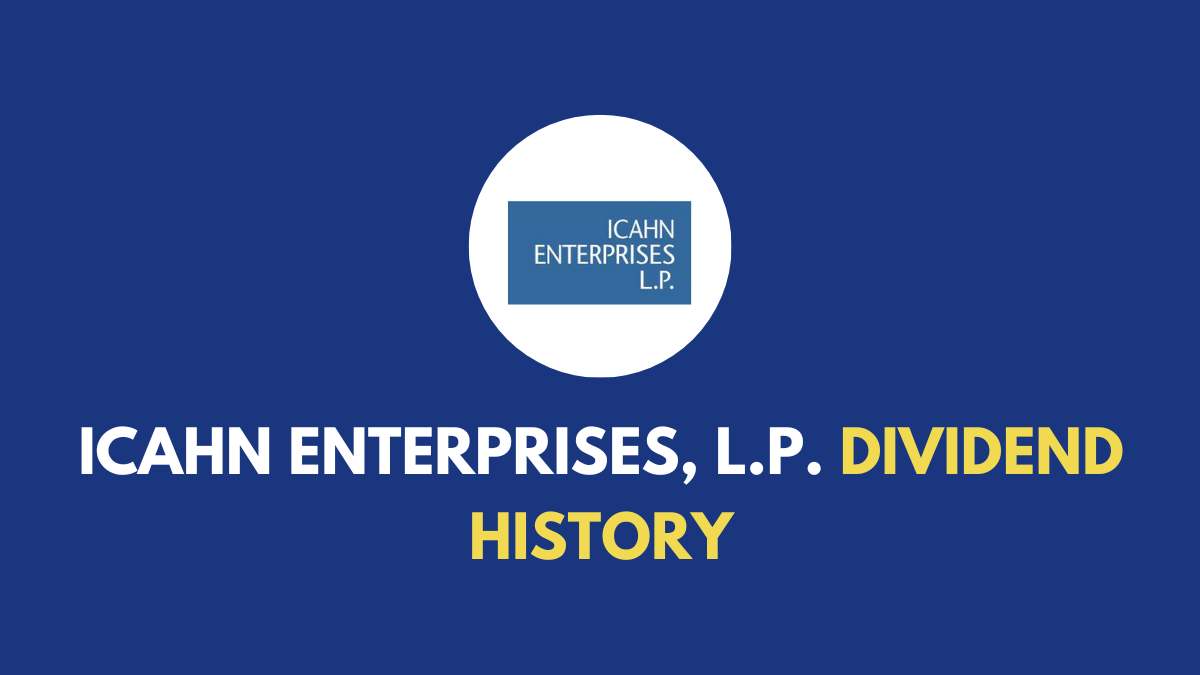Home>Finance>Explain How Tax Compliance Differs From Tax Planning.


Finance
Explain How Tax Compliance Differs From Tax Planning.
Published: January 21, 2024
Discover the key differences between tax compliance and tax planning in the world of finance. Gain insights and stay up to date with your tax obligations and strategic financial decisions.
(Many of the links in this article redirect to a specific reviewed product. Your purchase of these products through affiliate links helps to generate commission for LiveWell, at no extra cost. Learn more)
Table of Contents
Introduction
Tax compliance and tax planning are two important aspects of managing finances, specifically in the realm of taxation. While both involve adhering to the tax laws and regulations, they have distinct roles and objectives. Understanding the differences between tax compliance and tax planning is crucial for individuals and businesses to effectively manage their tax obligations and optimize tax savings.
Tax compliance refers to the process of ensuring that individuals and organizations fulfill their legal obligations of reporting income, deductions, and other relevant financial information to the tax authorities. It involves following the established rules and regulations set by the tax authorities to calculate and pay the accurate amount of taxes owed.
On the other hand, tax planning is a proactive approach to managing one’s financial affairs in a way that minimizes tax liabilities legally. It involves analyzing and strategizing various financial decisions, such as investment choices, business decisions, and timing of income and expenses, to take advantage of available tax benefits and incentives.
Both tax compliance and tax planning play crucial roles in the overall taxation process. While tax compliance ensures that taxpayers fulfill their legal obligations, tax planning allows individuals and businesses to optimize their tax positions and minimize tax burdens.
In this article, we will delve deeper into the definitions, characteristics, and differences between tax compliance and tax planning. We will also explore the importance of both aspects in managing finances and meeting tax obligations effectively.
Definition of Tax Compliance
Tax compliance refers to the process of ensuring that individuals and organizations fulfill their legal obligations to the tax authorities by accurately reporting their income, deductions, and other financial information. It involves adhering to the established rules and regulations set by the tax authorities to calculate and pay the accurate amount of taxes owed.
When it comes to tax compliance, individuals and businesses are required to maintain proper records of their financial transactions, such as income sources, expenses, and investments. These records serve as evidence to support the accuracy of the information reported to the tax authorities.
Tax compliance includes various activities, such as filing tax returns, paying taxes on time, and providing relevant documents and information requested by the tax authorities. It also involves staying updated with the changing tax laws and regulations, as non-compliance can result in penalties, fines, and even legal repercussions.
The tax authorities, such as the Internal Revenue Service (IRS) in the United States, have the responsibility to enforce tax compliance and ensure that individuals and businesses meet their tax obligations. They may conduct audits and investigations to verify the accuracy of the tax returns and financial information provided by taxpayers.
Overall, tax compliance is a fundamental aspect of taxation that ensures individuals and businesses fulfill their legal duties and responsibilities related to paying taxes. It provides the framework for maintaining transparency and fairness in the tax system, allowing governments to collect the necessary revenue to fund public services and initiatives.
Next, we will explore the definition and characteristics of tax planning, which is distinct from tax compliance and focuses on optimizing tax positions and minimizing tax liabilities legally.
Definition of Tax Planning
Tax planning is a proactive approach to managing one’s financial affairs in a way that minimizes tax liabilities legally. It involves analyzing and strategizing various financial decisions to take advantage of available tax benefits and incentives, while still complying with the tax laws and regulations.
- Analysis: Tax planning starts with a thorough analysis of an individual’s or business’s financial situation. It includes examining income sources, deductible expenses, investments, and other relevant factors that impact the tax liability.
- Strategizing: Based on the analysis, tax planning involves developing strategies and making financial decisions that will optimize the tax position. This may include maximizing deductions, utilizing tax credits, and structuring transactions in a tax-efficient manner.
- Timing: Another critical aspect of tax planning is timing. By carefully timing income and expenses, individuals and businesses can take advantage of favorable tax rates, exemptions, and deductions, ultimately reducing their overall tax burden.
- Legal Compliance: It is important to note that tax planning is focused on minimizing tax liabilities within the boundaries of the law. It does not involve engaging in illegal activities, such as tax evasion or fraudulent schemes, to evade taxes.
Tax planning requires a deep understanding of the tax laws and regulations, as well as staying informed about any changes or updates. Individuals and businesses may seek the guidance of tax professionals, such as accountants or tax advisors, to develop effective tax planning strategies tailored to their specific circumstances.
The primary goal of tax planning is to optimize one’s tax position, ensuring that individuals and businesses are not paying more taxes than necessary. It can result in significant tax savings, allowing individuals to retain more of their hard-earned money and businesses to invest in growth and expansion.
While tax planning is an essential aspect of managing finances, it is important to remember that it should align with ethical and legal standards. Engaging in aggressive tax planning schemes that aim to exploit loopholes or manipulate the tax system may result in severe penalties and damage to one’s reputation.
Now that we have explored the definitions of tax compliance and tax planning, let’s examine the characteristics and differences between the two approaches in the next sections.
Characteristics of Tax Compliance
Tax compliance is characterized by several key features that distinguish it from other aspects of taxation. Understanding these characteristics is crucial for individuals and businesses to ensure they fulfill their legal obligations and maintain transparency in their tax affairs. Here are the key characteristics of tax compliance:
- Legal Obligation: Tax compliance is a legal requirement imposed by the tax authorities. Individuals and businesses are obligated to accurately report their income, deductions, and other financial information as specified by the tax laws and regulations.
- Accuracy and Truthfulness: Tax compliance emphasizes the importance of providing accurate and truthful information to the tax authorities. It requires individuals and businesses to maintain proper records and ensure that their tax returns reflect the true financial situation.
- Adherence to Deadlines: Tax compliance involves meeting deadlines for filing tax returns and paying taxes. Failure to comply with these deadlines may result in penalties and interest charges.
- Transparency: Tax compliance promotes transparency in financial affairs. It requires individuals and businesses to disclose their income sources, expenses, and other relevant information, which helps prevent tax evasion and maintain fairness in the tax system.
- Documentation and Record-keeping: Tax compliance involves maintaining thorough documentation and records of financial transactions. These records serve as evidence to support the accuracy of the information reported to the tax authorities in case of audits or inquiries.
Tax compliance is crucial for individuals and businesses to maintain their reputation, avoid legal consequences, and contribute to the overall stability and functioning of the tax system. Non-compliance can lead to penalties, fines, and legal actions by the tax authorities.
While tax compliance is a necessary aspect of managing finances, it is important to note that it may not necessarily result in tax optimization or minimizing tax liabilities. That’s where tax planning comes into play, offering individuals and businesses opportunities to legally reduce their tax burdens by strategically managing their finances.
In the next section, we will explore the characteristics of tax planning, highlighting how it differs from tax compliance.
Characteristics of Tax Planning
Tax planning possesses distinct characteristics that set it apart from tax compliance. By understanding these characteristics, individuals and businesses can leverage tax planning strategies to optimize their tax positions and legally minimize their tax liabilities. Here are the key characteristics of tax planning:
- Proactive Approach: Tax planning is a proactive approach that focuses on actively managing one’s financial affairs. It involves analyzing financial situations, identifying potential tax-saving opportunities, and implementing strategies to maximize tax benefits.
- Legally Optimizing Tax Liabilities: Tax planning aims to minimize tax liabilities within the boundaries of the law. It involves leveraging available tax benefits, such as deductions, exemptions, and credits, to legally reduce the amount of taxes owed.
- Individualized Strategies: Tax planning recognizes that each individual or business has unique circumstances. Therefore, it involves developing personalized strategies that take into account specific financial goals, income sources, expenses, and investments.
- Strategic Timing: Timing plays a crucial role in tax planning. By strategically timing income and expenses, individuals and businesses can take advantage of favorable tax rates, exemptions, and deductions to minimize their overall tax burden.
- Long-term Perspective: Tax planning often involves long-term planning, considering the potential tax implications of future financial decisions. It allows individuals and businesses to make informed choices that align with their financial objectives and minimize future tax obligations.
Tax planning requires a comprehensive understanding of the tax laws and regulations, as well as staying updated with any changes or updates. It may involve seeking the expertise of tax professionals, such as accountants or tax advisors, to develop effective tax planning strategies tailored to specific circumstances.
By harnessing the characteristics of tax planning, individuals and businesses can strategically manage their finances, minimize tax liabilities, and retain more of their hard-earned money. It allows them to optimize their tax positions while still remaining compliant with the applicable tax laws.
While tax compliance and tax planning are distinct, they are both crucial aspects of effective financial management. In the next section, we will explore the differences between tax compliance and tax planning in more detail.
Differences between Tax Compliance and Tax Planning
While tax compliance and tax planning are both important aspects of managing taxes, they differ in their objectives, approaches, and outcomes. Understanding the differences between tax compliance and tax planning is essential for individuals and businesses to effectively navigate their tax obligations and optimize their tax positions. Here are the key differences between tax compliance and tax planning:
- Objective: The primary objective of tax compliance is to fulfill the legal obligations imposed by the tax authorities. It involves accurately reporting income, deductions, and other financial information while adhering to the established rules and regulations. On the other hand, the objective of tax planning is to minimize tax liabilities legally. It focuses on leveraging available tax benefits and strategically managing financial decisions to optimize one’s tax position.
- Approach: Tax compliance is a reactive approach that involves following the prescribed tax laws and regulations. It emphasizes accuracy, truthfulness, and transparency in reporting financial information to the tax authorities. Tax planning, on the other hand, is a proactive approach that involves analyzing financial situations, identifying tax-saving opportunities, and strategizing to legally reduce tax liabilities. It requires careful analysis, thoughtful decision-making, and implementation of tax optimization strategies.
- Timeframe: Tax compliance is an ongoing requirement that individuals and businesses need to meet regularly, such as filing tax returns and paying taxes on time. It focuses on complying with the current tax laws and regulations. Tax planning, on the other hand, can be both short-term and long-term in nature. It considers future financial decisions that may impact tax liabilities and aims to optimize tax positions over an extended period.
- Outcome: The outcome of tax compliance is fulfilling one’s legal obligations to the tax authorities and maintaining transparency in financial affairs. It ensures compliance with the tax laws and regulations, avoiding penalties and legal consequences. The outcome of tax planning is minimizing tax liabilities legally and optimizing one’s tax position. It can result in significant tax savings, increased cash flow, and the ability to allocate resources strategically.
- Professional Involvement: Tax compliance can be efficiently handled by individuals with a basic understanding of tax laws, supported by software or online tax filing platforms. However, complex tax situations may require the assistance of tax professionals, such as accountants or tax advisors, to ensure compliance with regulations. Tax planning often involves seeking the expertise of tax professionals who can help individuals and businesses develop personalized strategies and navigate complex tax laws to optimize their tax positions effectively.
Both tax compliance and tax planning are essential for individuals and businesses. Tax compliance ensures adherence to the law and maintains transparency, while tax planning allows individuals and businesses to strategically manage their finances and minimize their tax liabilities legally. By incorporating both approaches, individuals and businesses can effectively meet their tax obligations and optimize their financial positions.
In the next sections, we will explore the importance of tax compliance and tax planning in more detail.
Importance of Tax Compliance
Tax compliance plays a vital role in effective financial management for both individuals and businesses. It is not only a legal requirement but also contributes to the overall stability and functioning of the tax system. Here are the key reasons highlighting the importance of tax compliance:
- Legal Obligation: Tax compliance is a legal requirement imposed by the tax authorities. Failure to comply with tax laws and regulations can result in penalties, fines, and legal consequences. By staying compliant, individuals and businesses can avoid unnecessary legal complications and maintain a good standing with the tax authorities.
- Ethical and Social Responsibility: Complying with tax laws is not only a legal obligation but also an ethical responsibility. It ensures that individuals and businesses contribute their fair share towards public services, infrastructure development, and social welfare programs. Tax compliance helps promote fairness and equality in society.
- Transparency and Accountability: Tax compliance requires individuals and businesses to accurately report their financial information to the tax authorities. This transparency promotes accountability, reducing the potential for tax evasion and gray market activities. It helps maintain the integrity of the tax system and ensures that everyone pays their fair share of taxes.
- Minimizes Legal and Financial Risks: Non-compliance with tax laws can lead to penalties, fines, and legal actions by the tax authorities. Such consequences can have significant financial implications, including the payment of back taxes and interest charges. By ensuring tax compliance, individuals and businesses can minimize legal and financial risks associated with non-compliance.
- Enhances Business Reputation: For businesses, tax compliance carries additional significance. It helps build a positive reputation and showcases their commitment to ethical practices. Compliant businesses are perceived as trustworthy and reliable, which can attract customers, investors, and business partners.
In summary, tax compliance is of utmost importance for individuals and businesses. It ensures legal adherence, promotes transparency and accountability, minimizes legal and financial risks, and enhances business reputation. By fulfilling tax obligations, individuals and businesses contribute to the overall functioning of the tax system and support the development of their communities.
Now, let’s explore the importance of tax planning in managing finances efficiently.
Importance of Tax Planning
Tax planning plays a crucial role in managing finances effectively and optimizing one’s tax position. It offers individuals and businesses opportunities to legally minimize tax liabilities and maximize tax savings. Here are the key reasons highlighting the importance of tax planning:
- Minimizing Tax Liabilities: Tax planning allows individuals and businesses to strategically manage their finances to minimize their tax liabilities. By analyzing financial situations, identifying tax-saving opportunities, and implementing effective strategies, individuals and businesses can legally reduce the amount of taxes owed. This results in increased cash flow and the ability to allocate resources strategically.
- Optimizing Tax Positions: Tax planning enables individuals and businesses to optimize their tax positions by taking advantage of available tax benefits and incentives. By strategically timing income and expenses, utilizing deductions and credits, and making informed financial decisions, individuals and businesses can reduce their overall tax burden and increase tax efficiency.
- Maximizing Tax Savings: Effective tax planning can result in significant tax savings for individuals and businesses. By leveraging tax opportunities, such as tax credits, exemption limits, and tax-deferred investment accounts, individuals can retain more of their hard-earned money, allowing for personal financial growth and long-term wealth accumulation. For businesses, tax savings can be reinvested for expansion, research and development, or employee incentives.
- Strategic Financial Decision-Making: Tax planning requires individuals and businesses to analyze their financial situations comprehensively. In doing so, they gain a better understanding of their financial strengths and weaknesses. This insight helps in making informed financial decisions that align with their goals, both in the short-term and long-term. Tax planning facilitates a holistic approach to financial management.
- Compliance with Tax Laws: While tax planning aims to minimize tax liabilities, it is important to note that it is conducted within the boundaries of the law. By engaging in tax planning, individuals and businesses ensure compliance with the tax laws and regulations while utilizing available legal avenues to optimize their tax positions. This helps avoid any potential legal complications or issues.
Overall, tax planning is essential for individuals and businesses looking to effectively manage their finances and minimize their tax burden. It allows for strategic financial decision-making, maximizes tax savings, and ensures compliance with the tax laws. By implementing effective tax planning strategies, individuals and businesses can optimize their financial positions and achieve their financial goals more efficiently.
Now that we have explored the importance of tax compliance and tax planning, let’s conclude this article by summarizing the key points discussed.
Conclusion
In conclusion, tax compliance and tax planning are two crucial aspects of managing finances effectively. While tax compliance focuses on fulfilling legal obligations and maintaining transparency in financial affairs, tax planning provides opportunities for individuals and businesses to strategically manage their finances and minimize tax liabilities within the bounds of the law.
Tax compliance ensures that individuals and businesses fulfill their legal duties, accurately report financial information to the tax authorities, and contribute their fair share towards public services and societal development. It promotes transparency, accountability, and adherence to the tax laws and regulations.
On the other hand, tax planning allows individuals and businesses to optimize their tax positions by strategically analyzing financial situations, identifying tax-saving opportunities, and implementing effective strategies. It aims to minimize tax liabilities, maximize tax savings, and align financial decisions with long-term goals.
Both tax compliance and tax planning are essential for individuals and businesses. Tax compliance ensures adherence to the law, avoids penalties and legal consequences, and supports the stability of the tax system. Tax planning, meanwhile, maximizes tax savings, increases cash flow, and enables individuals and businesses to retain more of their hard-earned money.
It is important to note that tax compliance and tax planning should be conducted ethically and within legal boundaries. Seeking the guidance of tax professionals can ensure compliance with the ever-changing tax laws and regulations, as well as the development of effective and tailored tax planning strategies.
By incorporating both tax compliance and tax planning into financial management practices, individuals and businesses can effectively meet their tax obligations, optimize their tax positions, and achieve their financial goals more efficiently.
Overall, a well-rounded approach that combines adherence to tax compliance obligations and the implementation of tax planning strategies is key to navigating the complexities of taxation, improving financial outcomes, and maintaining a solid foundation for long-term financial success.














